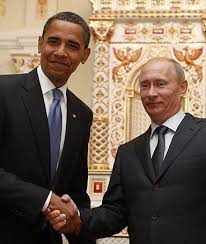Rethink Moldova | Opinion | The Moscow Times
18 May 2010
By Vlad Filat
Today, “color revolutions,” which a few years ago were seen as promising developments in the post-Soviet space, seem to be out of fashion. Around the world, disappointment with democracy promotion is widespread. Instead, consolidation of authoritarian regimes appears to be the prevailing trend.
Roughly a year ago, Moldova, a country few know about, seemed to confirm this. On April 7, 2009, Moldova made headlines when peaceful protests against unfair elections were hijacked by a small number of provocateurs who attacked the parliament building and presidential palace.
The media termed this the “Twitter Revolution,” which was an exaggeration, of course. Yet one year later, and despite the actions of those provocateurs, a new democratic government is in charge. The parliament building is not yet rebuilt, but the government is trying hard to rebuild Moldova as a democratic country with legitimate aspirations to join the European Union.
The protests of April 2009 were triggered by the Communist Party’s claim to have won a third consecutive term in power, following an aggressive election campaign with widespread abuses. The then-Communist government cracked down on protesters, leaving at least one person dead, while numerous allegations of widespread torture further traumatized and divided Moldovan society. Many in Moldova and Europe believed that another authoritarian state was emerging in the European neighborhood.





















 Procesul de reintegrare a ţării, care este un obiectiv prioritar al programului de guvernare, a fost în ultimul timp marcat de acţiuni orientate spre apropierea poziţiilor actorilor implicaţi pentru relansarea negocierilor în formatul „5+2” şi intensificarea măsurilor de întărire a încrederii.
Procesul de reintegrare a ţării, care este un obiectiv prioritar al programului de guvernare, a fost în ultimul timp marcat de acţiuni orientate spre apropierea poziţiilor actorilor implicaţi pentru relansarea negocierilor în formatul „5+2” şi intensificarea măsurilor de întărire a încrederii.









